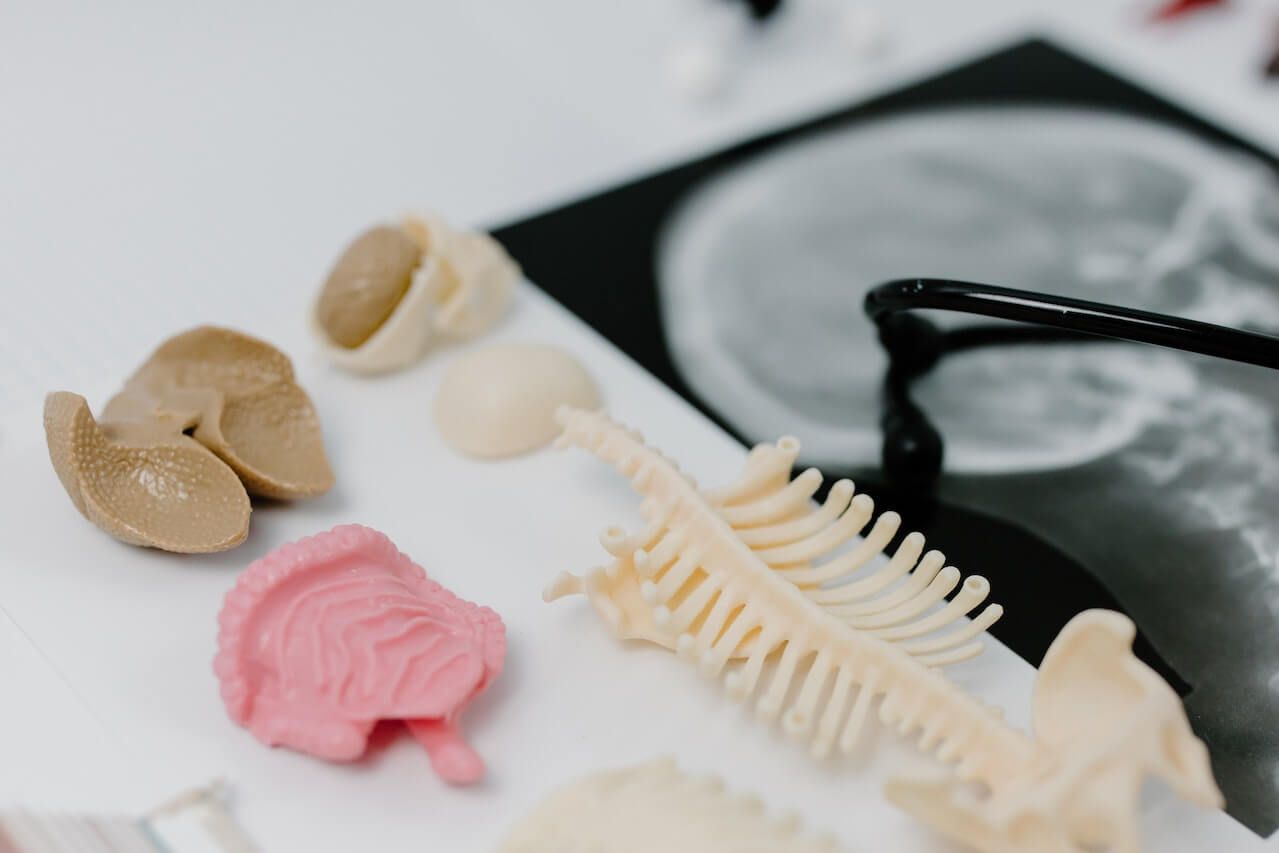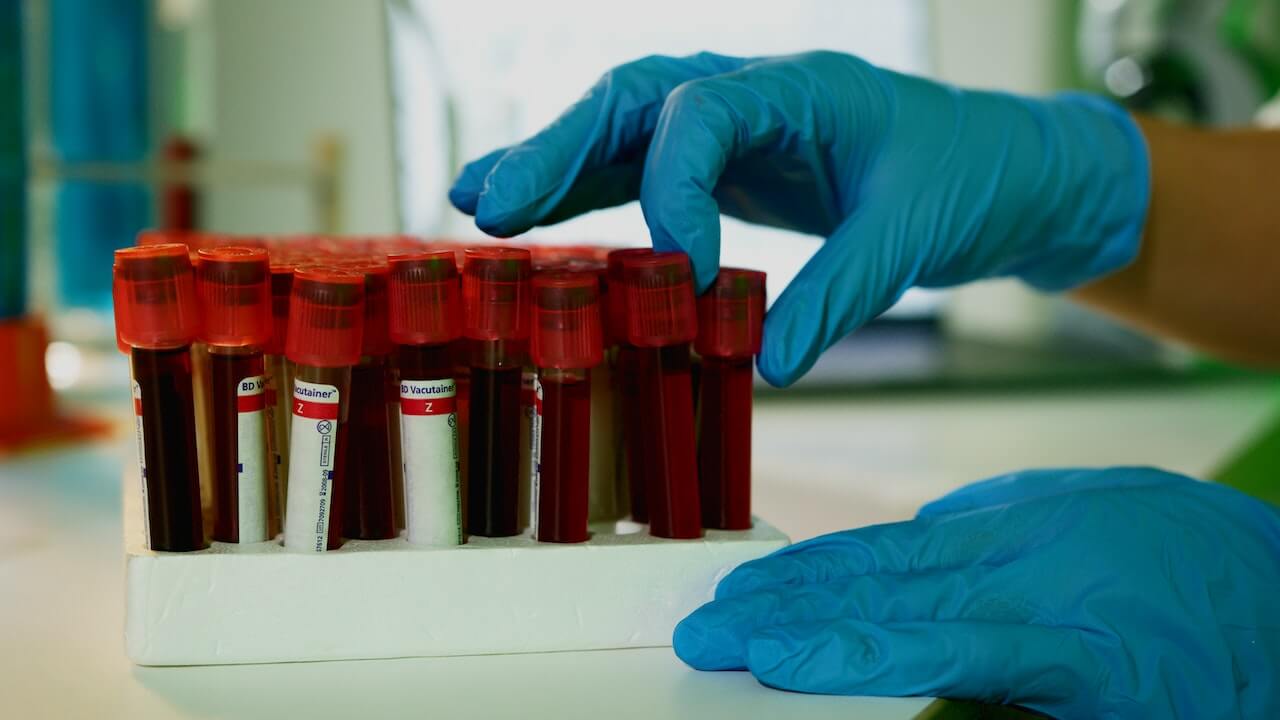Graduating from a New York medical school and working in medicine can be both lucrative and fulfilling. Given the aftermath of the COVID-19 pandemic, medical workers are more valuable to society than ever. The best medical schools in New York will provide prospective medical students with good research experience, faculty connections, and a variety of medical disciplines to study.
Students looking to work as practicing physicians, for example, must pursue an MD program and pass the USMLE or United States Medical Licensing Examination. As a result, one aspect students may want to research regarding medical schools is the USMLE pass rate. A medical school with a USMLE pass rate below the national average may not be a good choice.
Get Matched to Thousands of Scholarships
Create your Bold.org profile to access thousands of exclusive scholarships, available only on Bold.org.
Create Free ProfileMedicine is a field that contains many subdivisions and different employment options. There are several factors students should consider when applying to medical school. This means students should research what career they intend to pursue and what the requirements of that field are.
A rewarding career in medicine begins with choosing the right medical school, so be sure to research each school thoroughly to find the best fit for you.
Bold.org is a helpful resource for medical students attempting to pay for medical school. Make a free profile today and find free scholarships for students of all backgrounds. In addition, the Bold.org scholarship blog provides resources and advice regarding financial and educational decisions for students.

Best Medical Schools in New York
New York is home to many prestigious medical schools. For students who aren’t set on attending a New York medical school, you can also look over this list of the best medical schools in the US.
Among some of the top medical schools in New York are Weill Cornell Medical College, New York University, Columbia's Vagelos College, and more. Make a note of the acceptance rates, combined degree programs, and research opportunities when choosing the right New York medical school for you.
#1 Columbia University Vagelos College of Physicians and Surgeons
Acceptance Rate: 3.8%
Columbia University Vagelos College offers a wide range of programs, including MD, MD-PhD, and combined degree options. Renowned for its strong research programs and clinical training, Columbia provides students with access to top-notch faculty.
Located in the heart of New York City, it offers diverse clinical experiences, exposing students to a wide variety of medical conditions. However, this medical school's highly competitive admission process and limited financial aid options should be taken into consideration.
Columbia's medical programs are supplemented by its VP&S Club, which is one of the largest and most connected student organizations in the medical field. This extracurricular program allows medical students to get involved with arts, athletics, and more.
In addition, Columbia University Vagelos College of Physicians and Surgeons is a part of the Columbia University Irving Medical Center, which also contains the School of Nursing, Mailman School of Public Health, and College of Dental Medicine.
Acceptance Rate: 4.8%
Weill Cornell Medical College emphasizes research, patient care, and interdisciplinary collaboration with programs such as MD, MD-PhD, and joint degrees, offering students a comprehensive education.
Affiliated with prestigious hospitals, students gain exposure to diverse patient populations. Nevertheless, admission to Weill Cornell Medical College is highly competitive, and tuition fees are relatively high, especially for international students.
Cornell’s medical school also emphasizes international connections. There is a satellite school in Qatar, as well as partnerships and programs in Tanzania, Haiti, Brazil, Austria, and Turkey.
Weill Cornell Medicine students will also have access to the Memorial Sloan Kettering Cancer Center and the Hospital for Special Surgery. This provides students with innovative education and ample research projects.

#3 Icahn School of Medicine at Mount Sinai
Acceptance Rate: 4.5%
Icahn School of Medicine is known for its focus on community engagement, global health, and innovation. The school provides extensive research opportunities and collaborations with renowned institutions. However, the cost of living in New York City is high, and the program demands dedication and perseverance.
Students interested in the ethics of medicine and the problem of healthcare disparities may want to consider the Icahn School of Medicine.
The program’s educational philosophy is grounded in social justice, and the school aims to help prepare students to assist marginalized communities and promote systemic change. Leadership is emphasized, as are real-world applications of classroom concepts.
#4 New York University School of Medicine
Acceptance rate: 2.8%
New York University School of Medicine places a strong emphasis on primary care, urban health, and medical ethics. The curriculum provides early clinical exposure and interactions with diverse patient populations.
The school also offers joint degree programs for further specialization. Prospective students should be aware of the intense workload, limited financial aid for out-of-state students, and the high cost of living in New York City.
It’s notable that New York University School of Medicine promises to give every MD degree program student a full tuition scholarship.
This scholarship is awarded regardless of merit or demonstrated financial need in order to allow students to pursue their talents and interests. In addition, the accelerated three-year MD program can allow students to graduate one year earlier than traditional medical school pathways.

#5 Albert Einstein College of Medicine
Acceptance Rate: 2.1%
Albert Einstein College of Medicine boasts a strong research focus, particularly in basic science and biomedical research. With an emphasis on community service and social justice, the school instills a sense of purpose in its students.
However, the admission process is highly competitive, and financial aid options are limited. The curriculum can be demanding, requiring students to balance research and academic commitments.
The Biomedical Sciences Graduate Programs are notable at Albert Einstein College, as is the Medical Scientist Training Program, which provides both MD and Ph.D. degrees.
Albert Einstein College is known for its ‘bench to bedside’ philosophy, which promotes the development of medical students that possess both the skills of a practicing physician and a research scientist. In addition, the Albert Einstein College of Medicine offers six graduate degree programs.
#6 Stony Brook University School of Medicine
Acceptance Rate: 2.9%
Stony Brook University School of Medicine stands out for its strong clinical training and focus on primary care. It offers opportunities for rural and underserved community experiences, preparing students for a variety of healthcare settings.
The lower cost of living compared to New York City is an advantage, but students should note that research opportunities may be relatively limited compared to some other institutions.
Stony Brook University School of Medicine is composed of the five schools of the health sciences, including a school of medicine, dental medicine, nursing, social welfare, and lastly, the school of health technology and management.
In addition, Stony Brook offers a program in public health. Students may also be interested in global medical programs in Africa, Asia, Latin America, the Middle East, and Europe. With a wide range of partner programs in various other countries, medical students can pursue their degrees in the context of global healthcare.
#7 University at Buffalo Jacobs School of Medicine and Biomedical Sciences
Acceptance Rate: 6.3%
The University at Buffalo's medical school provides students with extensive clinical opportunities through affiliations with major healthcare systems. The emphasis on interprofessional education and research collaborations fosters a well-rounded learning experience.
However, scholarships for out-of-state students are limited, and the harsh Buffalo winters should be considered.
The objectives of the medical education program at Jacobs School of Medicine include patient care, interpersonal and communication skills, professionalism, personal and professional development, and more. Promoting compassionate, appropriate, and effective healthcare provides students with a well-rounded and applicable education.

New York Medical School Degrees
New York medical schools offer many different programs that result in different qualifications for different occupations. Students should think about which degree they intend to pursue to narrow down their choice of medical schools. Possible degrees to obtain from medical school include:
- Bachelor’s Degree
- Master’s Degree
- MD Degree
- PhD
A bachelor's degree provides the foundation for further education in medical or graduate programs. Graduate programs offer specialized knowledge and can lead to careers in research, public health, or related fields. An MD degree is required to practice medicine, while a Ph.D. degree focuses on research and can lead to careers in academia, research, or industry.
There are many occupations available to students after graduating from medical school besides becoming a doctor. For example, research positions at other New York medical schools can allow students to contribute to medical knowledge. Many schools in New York provide funding for students interested in improving their understanding of medicine.
Each degree opens up unique employment opportunities. Many medical schools in New York have different degree tracks or combined degree programs. Be sure to find out what each degree program entails at the medical schools you're looking at.
Med school isn't for everyone, but you can still work in medicine without becoming a doctor. Apply for nursing scholarships today to ease the financial burden of paying tuition by yourself.

Bachelor’s Degree
A bachelor's degree is an undergraduate degree typically completed over four years of study at medical school.
In the context of medical school, students often pursue a Bachelor of Science (B.S.) degree with a pre-medical track. This degree provides a foundation in scientific and liberal arts coursework, including biology, chemistry, physics, and mathematics. A bachelor's degree alone does not qualify individuals to practice medicine, but it serves as a prerequisite for admission to medical school or graduate programs.
With a bachelor's degree, graduates can explore employment opportunities in healthcare-related fields such as medical research, clinical research coordination, healthcare administration, pharmaceutical sales, or medical writing. Some graduates may also choose to pursue further education by returning to medical school or graduate programs. Attending medical school is a long-term investment in your career, as it will usually take more than four years to gain an MD degree if becoming a practicing physician is your goal.
Given the time and money required to attend med school, aspiring medical school students may be interested in this list of scholarships for medical school. Make sure not to waste time by completing the necessary prerequisites before applying to medical school. Read this guide to make sure your medical school prerequisites are in order.
Graduate Programs
Graduate programs refer to advanced degrees beyond the bachelor's level, such as Master's (M.S.) and Doctoral (Ph.D.) degrees. In medical school, relevant graduate programs include a Master's in Public Health (MPH), a Master's in Biomedical Sciences, a Master's in Medical Sciences, or a Master's in Clinical Research.
With a graduate degree, individuals can pursue various career paths. For example, a Master's in Public Health can lead to roles in public health organizations, healthcare policy, epidemiology, or health promotion. A Master's in Biomedical Sciences can open doors to research positions in other medical schools, while a Master's in Clinical Research can lead to careers in clinical trial management or regulatory affairs.
MD Degree
MD (Doctor of Medicine): The MD degree is a professional doctorate obtained through medical school, usually after completing a bachelor's degree. It is the primary degree required to become a licensed physician and practice medicine. MD holders can pursue a wide range of medical career paths, including clinical practice, medical education, research, administration, or specialization in a specific medical field.
MD graduates can work as general practitioners, specialists, surgeons, and hospitalists or pursue further training through residency and medical school fellowship programs to gain expertise in specific medical disciplines. MD degrees are both academically difficult to attain and often quite costly. To get a better understanding of the financial logistics of attending medical school, take a look at this article on how much medical school costs.

PhD
Ph.D. (Doctor of Philosophy): A Ph.D. is a research-focused doctoral degree obtained through graduate programs in various fields, including medical sciences. In the medical field, individuals pursuing a Ph.D. often focus on areas such as biomedical research, public health research, or medical education research.
Ph.D. holders in medical sciences can pursue careers in academia as professors or researchers working in universities, medical schools, or research institutions. They can contribute to advancing scientific knowledge through research, publication, and mentoring.
Ph.D. graduates can also work in government agencies, pharmaceutical or biotechnology companies, healthcare consulting, or pursue careers in science policy and administration. It's important to note that some medical schools offer combined degree programs, such as MD-PhD or MD-MPH. These programs integrate medical training with research or public health coursework, allowing individuals to pursue dual degrees.

Frequently Asked Questions
How hard is it to pass the MCAT?
The MCAT is notorious for its difficulty, although students in med school may want to note it is still considered easier than the USMLE. Typically, an MCAT score of around 510 is sufficient to be accepted into medical school. Read this article for a better understanding of how hard the MCAT is.
How many medical schools are there in New York?
There are fifteen accredited medical schools in New York. Students will be able to choose from a variety of medical schools with different strengths and programs. Students who need financial aid may want to consider NYU’s School of Medicine for their scholarship program.
Check out more helpful articles on the Bold.org scholarship blog!

About Elise
Elise is a skilled and knowledgeable writer. Her understanding of scholarships and internships enables her to craft insightful and informative content that resonates with students, helping them navigate the often complex processes of applying for financial aid and career opportunities.
Elise graduated from New York University with a double major in English and Psychology, as well as a minor in Creative Writing.
Experience
Through challenging university coursework and corporate experience, Elise has become an expert in several different types of writing, including literary analysis, content pieces, formal scientific writing, SEO editing, and more. Elise expanded on her knowledge while interning in marketing, using her understanding of SEO to boost website traffic and customer engagement.
She’s published a short story in The Foundationalist literary magazine and has also won several short story writing awards at the regional and international levels. Elise loves to craft content that helps students navigate college life and scholarship applications. She makes use of syntax and tone to write readable, engaging pieces. Elise has a solid understanding of linguistics and grammatical structures across multiple languages, thanks to her fluency in English and proficiency in Mandarin and Cantonese.
Elise first joined Bold.org in 2022 during her undergraduate studies, explored other pursuits in 2023, and happily returned in 2024. Motivated by her writing skills, she aims to make educational resources more accessible for students of all backgrounds. Additionally, she believes it's important to add to the available information on student loans and student finances in a way that's user-friendly and easy to understand.
Quote from Elise
“I try to create content that would have helped my younger self— stuff I wish I knew when I was starting college.”